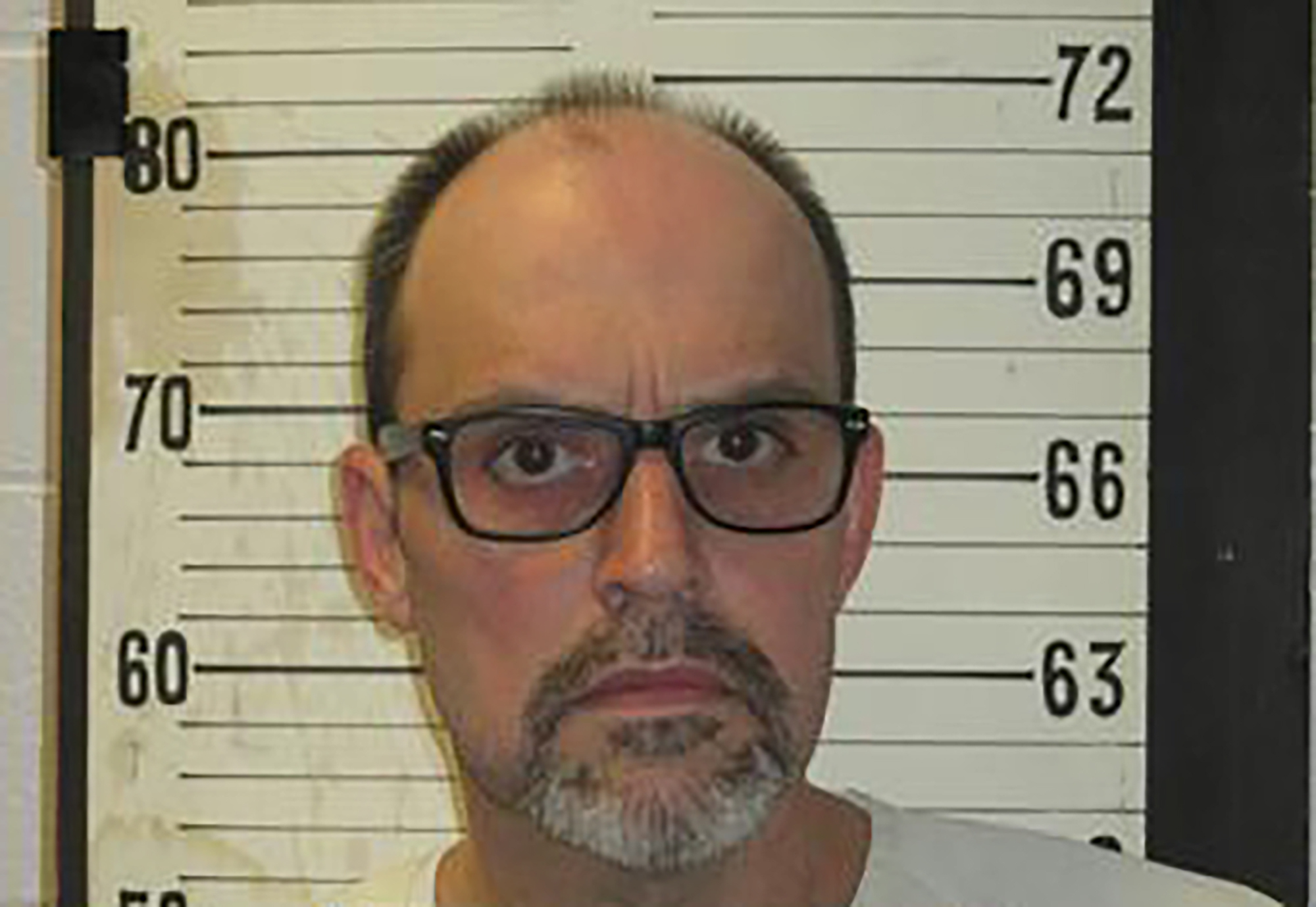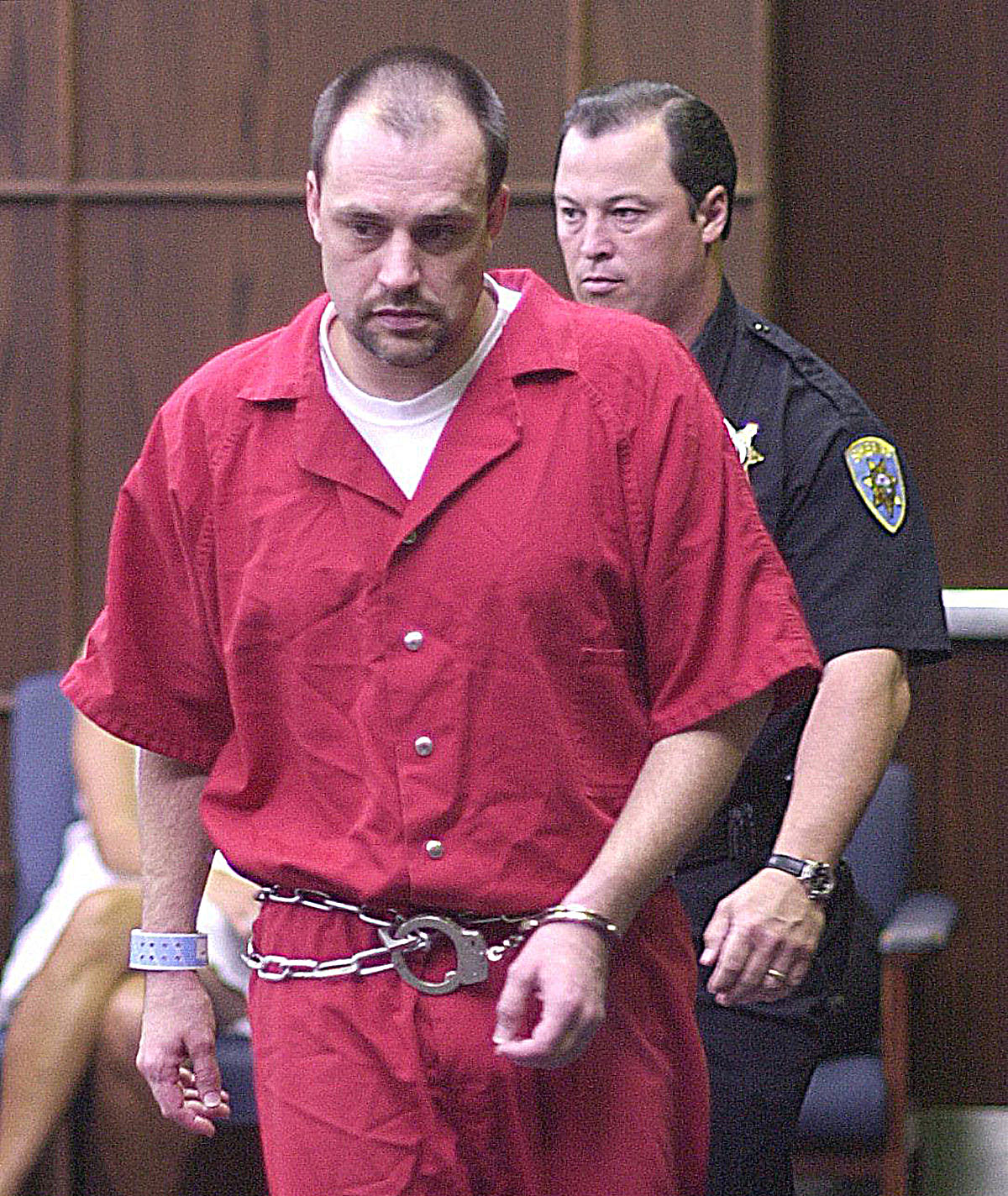As Chattanooga man Lee Hall awaits a decision on whether his Dec. 5 execution will be delayed in order for the courts to examine a possible constitutional violation in his trial, the Tennessee Court of Criminal Appeals has granted a new trial in a case with problems similar to Hall's.
Hall, who has changed his name from Leroy Hall Jr., was convicted in the April 1991 burning death of his ex-girlfriend, Traci Crozier. The 53-year-old has requested to die by electrocution.
His defense attorneys have embarked in a last-minute legal battle after they discovered information they say indicates a juror - identified only as "Juror A" - was biased during his trial because of a history with domestic violence she didn't disclose during the jury selection process.
Hamilton County District Attorney Neal Pinkston has vehemently opposed the petitions.
On Monday, Tennessee's Court of Criminal Appeals granted Hubert Sexton Jr., 47, a new trial, saying he was "denied his constitutional right to a fair and impartial jury and received the ineffective assistance of counsel."
The case is similar to Hall's in that at least one juror had a history with domestic violence. But it differs in the fact that at least one juror was found to have willfully withheld her history and then shared her experience with other jurors. And Sexton's attorneys failed to ask another juror about a rape that she disclosed in her juror questionnaire.
The juror in Hall's case is not known to have shared her experience with other jurors. And Hall's counsel didn't ask Juror A about her history, but that was because she didn't disclose her experiences. She was asked if she had ever been the victim of a crime and, technically, according to Hamilton County Criminal Court Judge Don Poole, she was correct in denying that, as she did not report the incidents to police, meaning no criminal charges were filed.
Additionally, Sexton had not previously filed a petition for post-conviction relief that was denied, while Hall has. He tried to appeal his conviction in 1998. It was denied in 2004.
The Times Free Press is not identifying the jurors in question because of the nature of their experiences as victims of domestic violence.
SEXTON TRIAL
Sexton, who lived in Bradley County at the time, was convicted of shooting and killing Stanley and Terry Sue Goodman as they slept in their bed at their home in Scott County, Tennessee, on May 20, 2000.
The killings took place four days after Sexton's minor stepdaughter reported to authorities she had been sexually abused by Sexton.
Sexton was arrested just days later after he confessed to multiple people about killing the couple.
Prosecutors sought the death penalty, but the Tennessee Supreme Court later threw out the death penalty sentence, noting multiple problems with the trial, including allowing a child services worker to testify regarding the child sexual abuse allegations and allowing a police officer to testify that Sexton refused to take a polygraph test, even though polygraph evidence is not considered reliable.
Sexton was then re-sentenced to consecutive life sentences.
PROBLEMS WITH THE TRIAL
Sexton promptly filed a petition for post-conviction relief, citing several problems. He claimed at least three jurors had histories with domestic violence, including one who had been raped as a child by her stepfather. Another had been "threatened" by an unidentified man, which caused the jury to be relocated from one hotel to another. And during that relocation, a bailiff allegedly told at least one juror about the threat and safety concerns.
Sexton further claimed his attorneys were ineffective because they failed to question a juror who had disclosed a history of rape by her stepfather.
The appellate court rejected several of Sexton's claims, but upheld enough to warrant granting him a new trial.
The court found that one juror was prejudiced because she failed to disclose her experience with domestic violence twice during jury selection, despite admittedly wondering if she would have been chosen had the attorneys known about her past experience. And she told other jurors about her experiences with abuse and compared herself to Sexton's wife.
The court also found that Sexton's defense counsel was ineffective for failing to question another juror about her disclosure that she and her sister were raped by their stepfather and that she had been a victim of domestic violence.
"There is nothing in the record demonstrating trial counsel had a strategic reason not to question [the juror] about her disclosure," Court of Criminal Appeals Judge J. Ross Dyer noted. "Therefore, we conclude trial counsel's failure to question [the juror] ... was objectively unreasonable and resulted in deficient performance."
" ... [Sexton] was denied his right to a fair and impartial jury, requiring automatic reversal," Dyer ruled.
HOW IT COMPARES
An issue raised with one juror who served on Sexton's trial echoes the predicament in Hall's case.
The juror testified during a March 2017 post-conviction hearing that she didn't remember her answer to the question about whether she had been a victim of a crime. But she said she "would have probably said no," as she "did not 'consider what happened to [her] a crime' because no one was arrested."
She did, however, acknowledge being a victim of domestic violence, admitted to being in a "verbally abusive relationship" and added that "it could have gotten much worse, so yes, domestic violence does stay with me to some extent."
In Hall's case, Juror A said she didn't think of herself as a victim at the time of her abuse because of societal views on date rape and marital rape, and she never reported the abuse to police.
"In 1969, there was really no such thing that I knew of, of date rape, especially since I'd been dating him for so long," she said. "I didn't even know the term 'domestic abuse' at the time. ... I had no notion that I had ever been a victim of a crime."
 This 2017 photo provided by the Tennessee Department of Correction shows Lee Hall, formerly known as Leroy Hall Jr. Hall, a death row inmate, on Thursday, Nov. 7, 2019, selected electrocution for his upcoming execution, a move that would make him the fourth person in the state to choose that method over lethal injection since 2018. (Tennessee Department of Correction via AP)
This 2017 photo provided by the Tennessee Department of Correction shows Lee Hall, formerly known as Leroy Hall Jr. Hall, a death row inmate, on Thursday, Nov. 7, 2019, selected electrocution for his upcoming execution, a move that would make him the fourth person in the state to choose that method over lethal injection since 2018. (Tennessee Department of Correction via AP)However, in Sexton's case, "while at first blush it appears [the juror's] answers and history might create a claim of juror bias, such is not the case when viewed more closely," Dyer wrote in his opinion.
"[The juror] made it clear that she did not equate being in a verbally abusive relationship to domestic violence or a crime," Dyer continued. "Thus, while she may have a history one might be concerned would reflect on [her] ability to be impartial, she did not willfully withhold information or intentionally mislead the parties. Rather, [she] answered the question honestly because she did not believe she had been the victim of a crime."
Additionally, Dyer noted, "the record is void of any proof that she shared her experience with the other jurors or that she considered it herself."
In Hall's case, his defense has argued that Juror A did admit to being biased and that she said she hated Hall.
However, during a Nov. 14 hearing, Juror A denied admitting to bias, though she did admit to saying she hated him.
But "that was during his testimony [at his trial] when he was talking about stalking her," she said. "I remember thinking, 'Oh, that's what my first husband threatened to do.'
"It was a fleeting thought."
Judge Poole eventually dismissed Hall's petitions, noting that the arguments are untimely and don't meet the legal standards, and Tennessee law limits a petitioner to only one request for post-conviction relief.
Hall's defense attorneys did not return a request for comment Tuesday, so it's not clear what Monday's appellate court ruling may mean for Hall's case.
In the meantime, they have asked Gov. Bill Lee to delay his execution next week in order to give them enough time to properly appeal Poole's rulings.
Lee's office confirmed receiving the request and has said it is being reviewed.
Contact Rosana Hughes at rhughes@timesfreepress.com or 423-757-6327 with tips or story ideas. Follow her on Twitter @HughesRosana.

